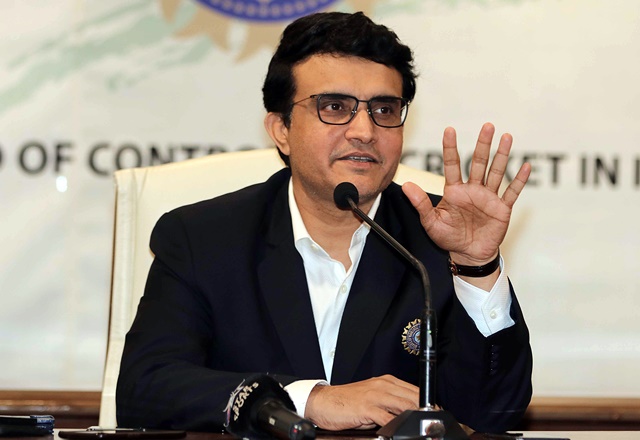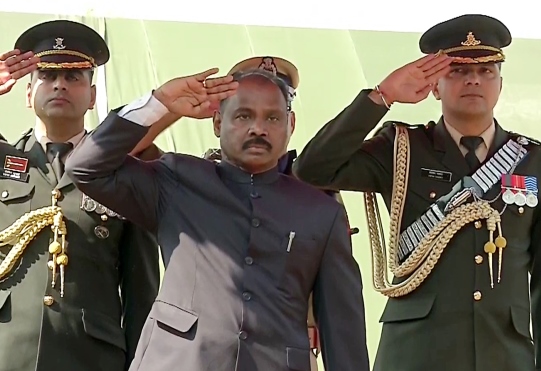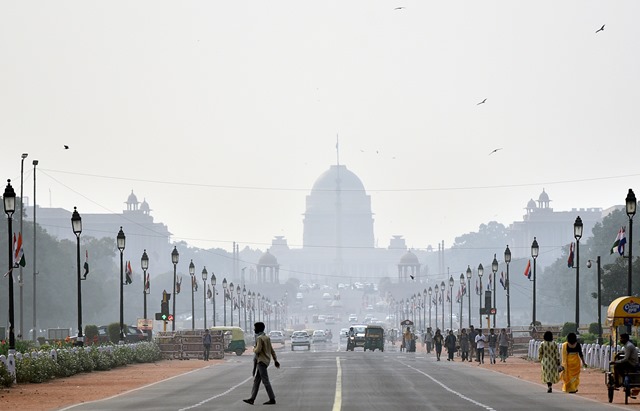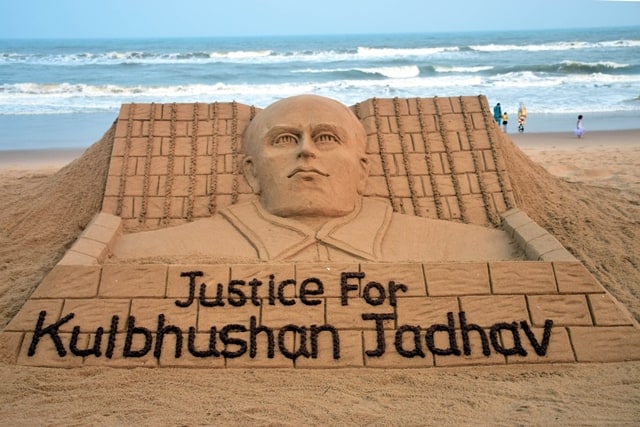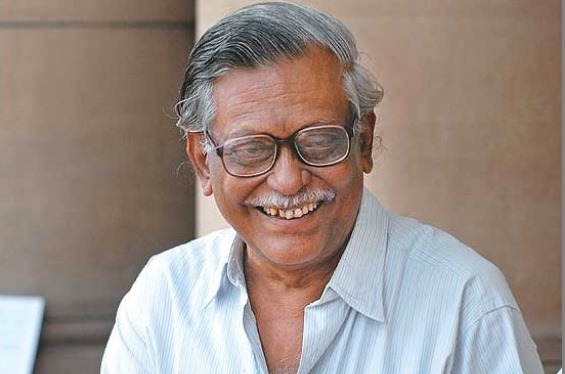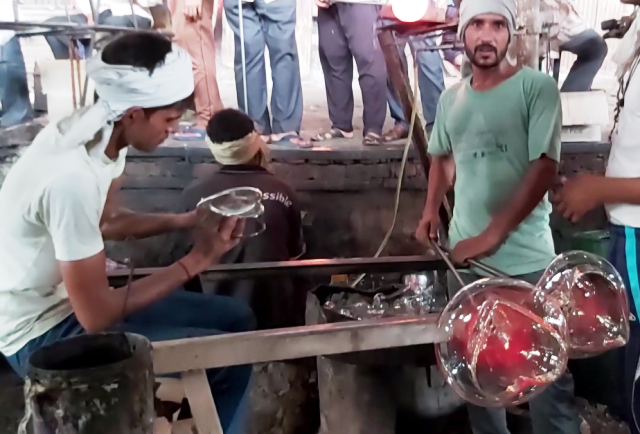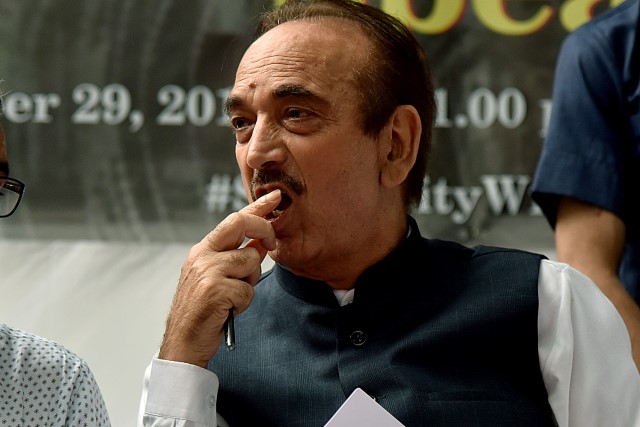Saurav Ganguly, one of India’s legendary captains heading Board for Control of Cricket in India (BCCI), the world’s richest cricketing body, has raised so much hype and hope that one almost forgets that his tenure will last no more than nine months.
Know a bit about him before coming to what he would have to, or could, do.
Good, elegant left-hand batsman, he earned his place with a century in his maiden test. But his progress in the national eleven was uneven, being dropped more than once, till he steadied himself in 1996. He owed it to Greg Chappell with whom he later fell out.
Handsome, smart and rich, he has clear-cut ideas about cricket and life, says veteran sports writer V. Srivatsa. Ganguly experienced cricket administration as Bengal Cricket Association’s chief for four years. But his new role is national and international.
Old-timers know him to be a bit lazy who avoided rigorous fitness sessions, including calisthenics. From a well-off family, he would show reluctance to carry water and drinks, an old cricketing tradition and practice, to fellow-players on the field.
Like many other cricket stars with filmy connections, he was reportedly linked to actress Naghma before settling down in life with childhood beau Donna.
An articulate man, he speaks like a cricketer. He has a knack of carrying people with him. Yet, he would have to deal with critics and former colleagues whom he had criticized in the past.
He is ambitious. When elected BCA chief, he had declared that someday, he would head the BCCI.
Symbolisms about his election include his being the first cricketer at the top of the country’s game 65 years after Maharajah of Vizianagaram aka ‘Vizzie’. He has charisma and clean image. But that may not suffice when he stares at a tough combination of overwhelming domestic issues and new external challenges.
“I don’t enjoy the word ‘control’ (in the full form of BCCI). It’s about proper functioning. We have to be in the thick of things because, at the end of the day, the responsibility has been put on us to get things going in the right direction.”
However, there are nagging doubts that it could be business as usual, despite his promise of “a new beginning”, doing things “the way I feel is best for BCCI, with no compromise on credibility and corruption free.”
Forget the game he played — and he played it well. This is his most challenging hour. He takes over from Committee of Administration (COA). Formed by the Supreme Court, it ran the Board for nearly three years.
The net result of BCCI’s controversial quarantine is that neither the apex court, nor the Committee could eliminate the deeply-entrenched vested interests. This underscores the reality, though not exclusive to India but certainly in excess, that dynasty is the defining principle be it politics, sports, cinema or business and industry.
Ganguly has BCCI’s a new constitution to abide by and a set of fresh office-bearers for a team that is composed largely of proxies of the very people whose actions had invited conflict of interest charges and of direct role in match-fixing, among other offences that had provoked the court to sack a BCCI president and appoint the COA.
Some of these worthies triumphantly entered the BCCI Headquarters minutes after the COA members had left to be photographed with Ganguly.
Feeble hope is being nursed as Ganguly had faced a similarly turbulent situation on the field when he took over the captaincy. Then the game was confronted with match-fixing scandal. But the times are decidedly more complex now.
For one, the political interests were multi-party earlier; today it’s single-party play. Bureaucrats are out, for now, but powerful trade and industry interests remain. Seeking to make it a players’ game is chasing a mirage.
This is because besides immense glamour and power that BCCI and cricket management brings, there is money. The Board will cross the Rs 13,000 crore-mark when the figures for financial year 2018-19 are out.
Speaking of money, what India’s Test caps got in the 1950s and 1960s for playing for five gruelling days, drawing many matches, losing some and winning a few, can’t buy even a single meal today. The flavor is single-day T20. The Board earnings are millions of times more, hence the player’s payments are also in eight digits.
There are no princes today, but those who play the game are no less in terms of riches. Endorsements add to their coffers. The BCCI is a highly corporatized body and the state associations are also rich and thriving. For, India has the players, the infrastructure, large audiences and corporate support through advertising.
Unable to control them though, the governments back up their cricket bodies to the hilt and engage in jostling in boardrooms and tournaments to have their say. The culture is spreading. The gentlemen’s game is no longer gentlemanly.
The lure of the game and the money it brings is spreading globally. Yesterday’s minnows like Bangladesh are significant players. Conflict-ridden Afghanistan has created cricketing oases of entertainment. India is helping the Maldives with a cricket stadium and possibly, a team of its own.
Diplomacy cannot be far behind. India beware — the hitherto absent China factor has emerged. China organized and hosted triangular matches with Afghanistan and Pakistan.
Dominating the T20 through IPL, India is working to revive the five-day Test cricket that has yielded to the quick single-day matches. To surmount the 13-hour time gap, it is likely to become a day-and-night affair.
Veteran cricket writer Ayaz Memon notes that while Indian cricket—particularly in the five-day format—is at its zenith, spectator attendance is falling. He wants India to take the lead in making Test “something to be savoured” and made “fantastically worthwhile”. People today have many other entertainment avenues. He supports the “World Test Cricket Championship” that he says India has “ridiculously spurned,” and wants Ganguly to reverse this.
Ganguly’s focus will be domestic cricket. He has acknowledged the overwhelming importance of Virat Kohli, currently having a long victory spell, by declaring that Kohli is the “most important man in Indian cricket.” He has nixed the idea of dual captaincy.
It is unclear if Ganguly will become BCCI’s representative at the ICC. With Shashank Manohar as the incumbent ICC chairman, egos and ideas could clash. But money makes the mare go. Ganguly wants to ensure that the BCCI gets its monetary due. “India is to get $372 million from the ICC in the five-year cycle,” he says.
His first task would be to form a Cricket Advisory Committee. But getting credible cricketers has posed a challenge due to the stringent Conflict of Interest rules.
“It (Conflict of Interest) has to change,” Ganguly has said. This has been a major bone of contention for cricketers, both present and former. Ganguly himself fell foul of the norms when he was wearing multiple hats at one time.
Will the rules be tweaked? The writer can be reached at mahendraved07@gmail.com
